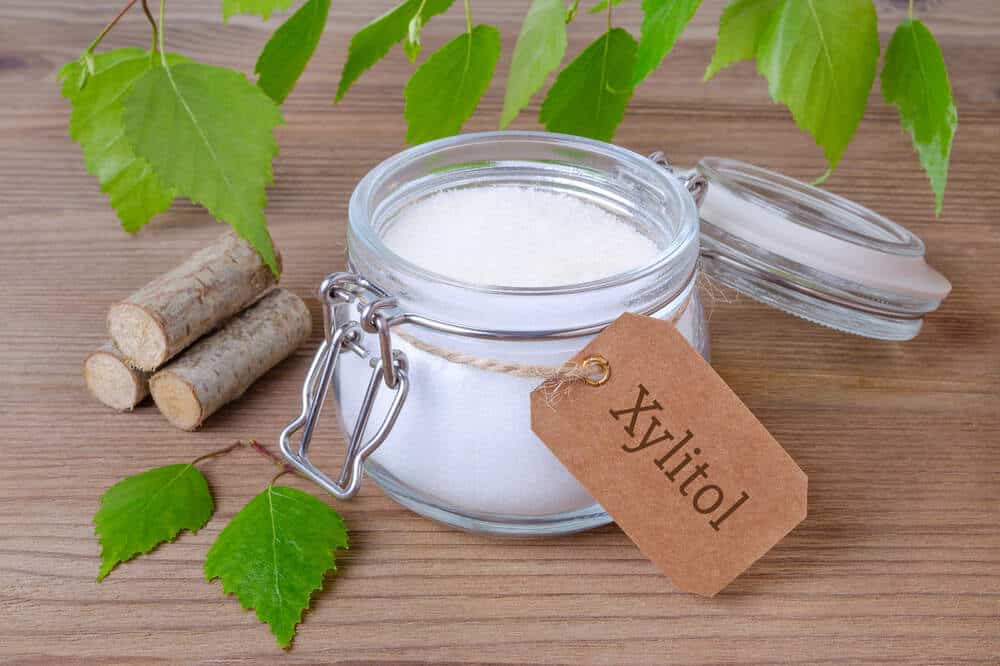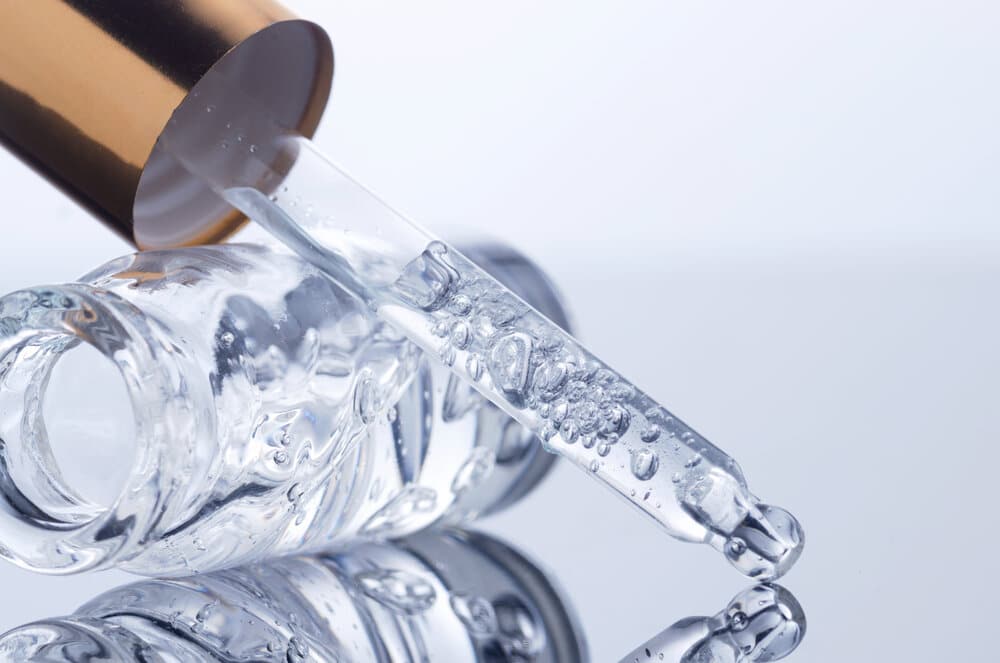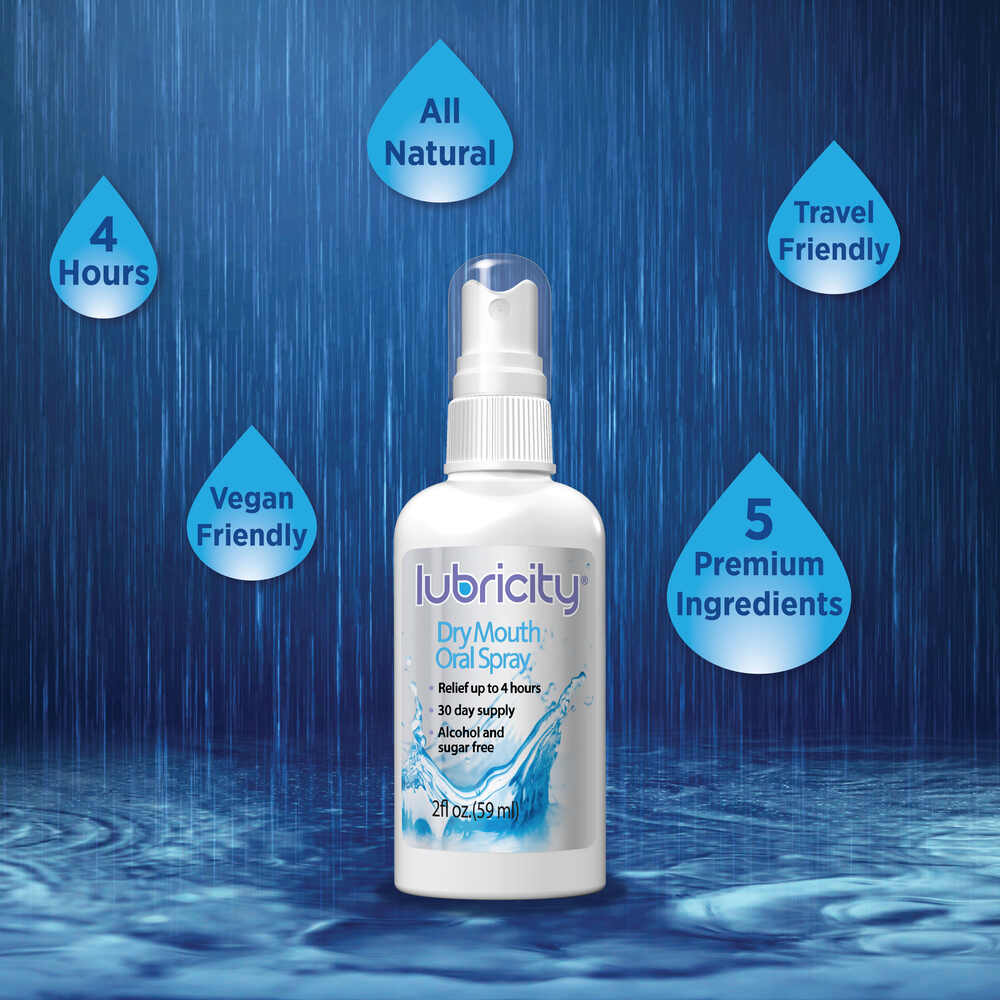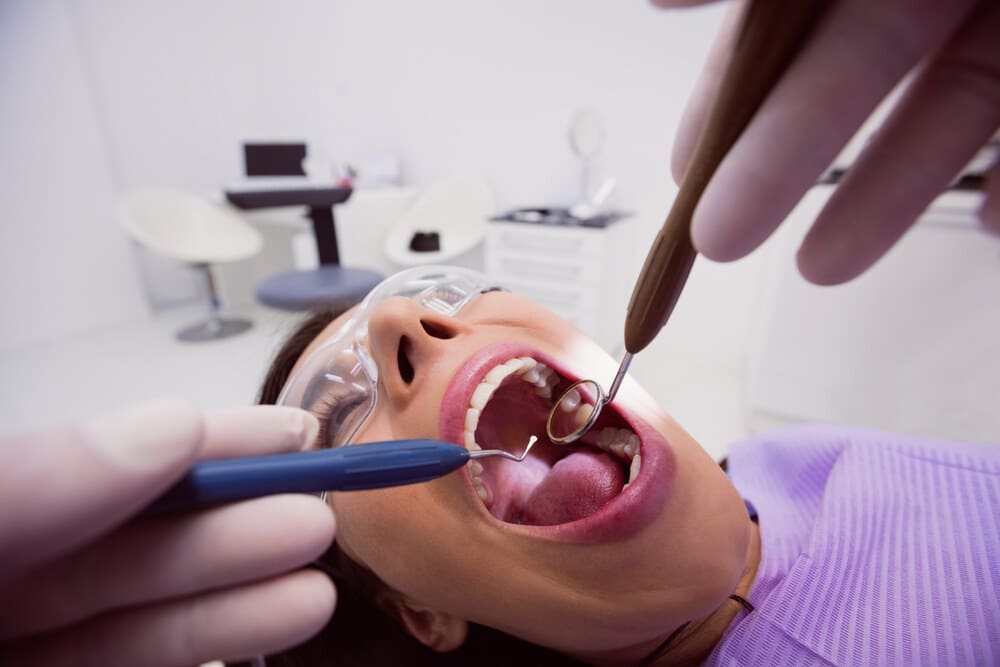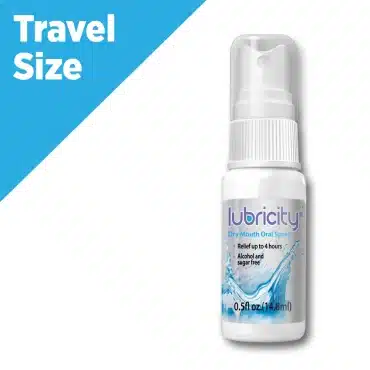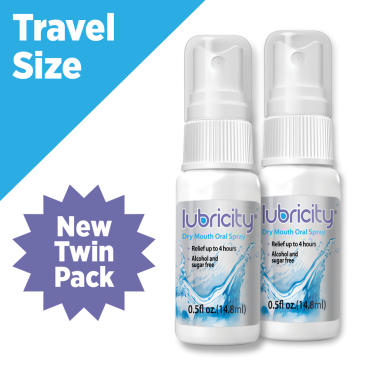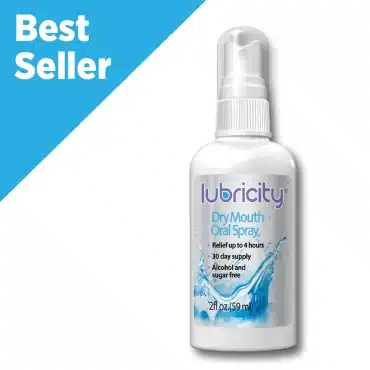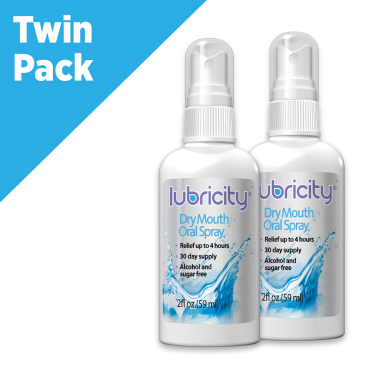Introduction
Taking care of your teeth goes beyond brushing and flossing. It is important to pick the right oral care products that are made with good ingredients. This blog talks about two key ingredients: xylitol and hyaluronic acid. Xylitol is a natural sugar substitute and sugar alcohol. We will explain how these ingredients can be good for your dental health. We will also examine their effectiveness and discuss how while they may not work for everyone, they can still help for most suffering from dry mouth.
Understanding Xylitol and Hyaluronic Acid
Xylitol and hyaluronic acid both play essential roles in oral health, each in their own unique ways. Xylitol enhances saliva production and inhibits the growth of harmful bacteria, keeping your mouth in a healthier state. Meanwhile, hyaluronic acid, a naturally occurring substance in our skin and connective tissues, excels at retaining moisture, which is crucial for maintaining hydration in the mouth. This can prevent common issues like dry mouth and its associated discomforts. Additionally, xylitol can even reduce the risk of cavities, making it a sweet addition to your oral care routine. Incorporating these elements can help ensure your mouth remains healthy and hydrated.
Origin and Natural Sources
Xylitol is a sugar alcohol that can be derived from various sources and is naturally found in small amounts in many fruits and vegetables, such as: Berries, Corn, Mushrooms, and Plums
Commercially, xylitol is often produced from hardwood trees like birch. It’s a sugar alcohol, so it has fewer calories than regular sugar. It may affect blood glucose levels less, as well. The body makes xylitol when it breaks down carbohydrates. Xylitol is sweet, and it comes from birch trees or plant fibers called xylan. It is a common ingredient in natural medicines and dietary supplements.
Hyaluronic acid is a substance that naturally exists in our bodies. The molecular weight of hyaluronic acid is important for how well it works. You can find high levels of it in the skin, eyes, joints, and in the articular cartilage which helps connect tissues. It can be helpful in conditions like osteoarthritis of the knee. In eye care, eye drops that contain hyaluronic acid may help improve eye health. As we age, our bodies produce less hyaluronic acid. This decrease can cause issues like wrinkles and stiff joints.
Hyaluronic acid is great at holding water. This ability helps keep parts of the body, like the mouth, moist and comfortable. Because it is so useful, hyaluronic acid is found in skincare products, dietary supplements, and medicines.
Key Properties and Their Role in Oral Health
Xylitol is important for a healthy mouth. It helps stop the growth of Streptococcus mutans. This is the bacteria that leads to tooth decay. Xylitol, a natural sugar alcohol, weakens these harmful bacteria. This reduces plaque build-up and lowers the risk of cavities.
It also helps your mouth make saliva. Saliva is key because it balances acids, removes food, and keeps your mouth moist. This is helpful for those with dry mouth. So, using chewing gum and oral care products that include this ingredient is great for your oral health.
Hyaluronic acid can also be very important for your oral health. It helps to keep moisture in the tissues of your mouth. By holding water, it lubricates the mouth. This can reduce friction and pain, especially for people who have dry mouth symptoms.
The Science Behind Moisture Retention
Dry mouth occurs when your body does not produce enough saliva. This can cause discomfort and hurt your oral health. Saliva is helpful because it keeps your mouth moist, helps with digestion, and shields your teeth from decay.
It is important to keep your mouth moist to be healthy. Xylitol and hyaluronic acid both help with this. They have different ways of working, but they support each other to keep your mouth wet.
How Xylitol Stimulates Saliva Production
Xylitol, being a sugar alcohol, creates a unique effect in your mouth that helps your body make more saliva. When you eat xylitol, it touches the taste buds on your tongue. This tells your salivary glands to produce more saliva.
Having more saliva is good for people who have dry mouth symptoms. It helps keep their mouths moist. Extra saliva also helps with oral hygiene. It washes away food particles and balances the acids that can lead to tooth decay.
Xylitol is special because of how it works. It can stop bad bacteria from growing. This is why many oral care products use it. They aim to help with dry mouth and improve overall oral health.
Xylitol and Hyaluronic Acid in a Cotton Mouth Solution
Xylitol and hyaluronic acid in a moisturizing spray work well together for good oral health. Xylitol is a sugar substitute. It helps fight tooth decay and dry mouth. Fun Fact: It can also lower the risk of ear infections in children up to 12 years of age, specifically otitis media. Hyaluronic acid is good for wound healing. It helps keep connective tissues healthy. When combined, these ingredients provide more benefits than regular oral care products.
Hyaluronic Acid’s Capacity to Retain Water
Hyaluronic acid is a unique ingredient. It can pull in and hold onto water. This skill is key for keeping various parts of the body moist. This includes the skin, eyes, and mouth.
In the mouth, hyaluronic acid acts like a sponge. It draws moisture from the air and keeps it in the tissues. This helps to keep the mouth wet and prevents pain from dryness. It also creates a protective layer on the soft tissues which keeps them safe from irritants and helps maintain a healthy mouth.
More people are using hyaluronic acid. This is because it holds water well and helps with oral health. You can find it in many oral care products. These include mouthwash, lozenges, and sprays. They are often used for relief from dry mouth.
Combatting Dry Mouth with Xylitol and Hyaluronic Acid
Dry mouth can be a problem. It may happen because of certain medications or health issues. When you have dry mouth, it can be hard to talk, eat, and swallow. You might also get more oral infections and suffer from worse dental problems.
Xylitol and hyaluronic acid are both great choices to help with dry mouth. They work well together. Adding them to oral care products can ease dryness and promote a healthier mouth.
What Effective Home Remedies for Cotton Mouth Exist?
For people who have dry mouth, also called cotton mouth, using xylitol and hyaluronic acid can be very helpful. Chewing sugarless gum that contains xylitol is an easy way to boost saliva flow. This can provide quick relief from the feeling of dryness.
Using mouthwashes or sprays with these ingredients can help with cotton mouth in two ways. Xylitol boosts your body’s saliva production. At the same time, hyaluronic acid keeps your mouth moist by attracting and holding water.
These oral care products are easy to get. They provide a good way to help with dry mouth symptoms. They keep your mouth comfy and support better oral health.
Enhancing Salivary Flow and Oral Comfort
Keeping enough saliva in your mouth is very important. It helps you feel comfortable and is good for your teeth. Saliva keeps your mouth wet, helps you swallow food, and balances the harmful acids made by bacteria. If you don’t have enough saliva, your mouth may feel dry and uncomfortable. This can make you look for different treatment options. A lack of saliva can also cause issues with your oral health.
Chewing sugar-free gum with xylitol can help your mouth make more saliva. This extra saliva adds moisture to your mouth. It can reduce dryness and ease any discomfort you feel.
Chewing helps make more saliva. This extra saliva can make your mouth feel comfortable. It also supports good dental health. That’s why xylitol gum can be helpful.
Dental Health Advantages
Xylitol and hyaluronic acid can do more than help with dry mouth. They can also help keep your dental health in good shape. Each one has its own benefits. Together, they make your mouth healthier.
Xylitol helps stop cavities. Hyaluronic acid keeps your gums and mouth healthy. Both are key for taking care of your mouth.
Is Xylitol Safe to Use for Dry Mouth Treatment?
Yes, generally xylitol is safe, but consuming it in excess can lead to certain side effects. While it’s commonly found in many sugar-free chewing gums and other products, there’s a misconception that more is always better. Continuous use of xylitol is beneficial for optimal results, but moderation is key. Exceeding 40-50 grams per day can cause side effects such as diarrhea, bloating, nausea, increased bowel movements, and the sounds of gas moving through the intestines.
Just because xylitol is in chewing gum, which we often associate with safety, doesn’t mean it’s free from potential side effects when consumed in large amounts. It’s important to read product instructions and consult your dentist or doctor before using xylitol to maximize its benefits.
As for its effects on diabetics, xylitol is safe and does not raise blood sugar levels, despite being a sugar alcohol. However, individuals with diabetes should still be cautious about potential side effects from overconsumption. Overall, responsible use is key to enjoying the benefits of xylitol.
The Role of Hyaluronic Acid in Gum Health
Hyaluronic acid is famous for its beauty benefits. But it is also important for healthy gums. Healthy gums are essential for keeping teeth in place. Choosing a dry mouth product with hyaluronic acid offers several benefits:
- Moisture Retention: Hyaluronic acid is known for its ability to retain moisture, helping to keep your mouth hydrated.
- Soothing Effect: It can provide a soothing effect on oral tissues, which can be particularly comforting for those experiencing dryness or irritation.
- Enhanced Lubrication: Hyaluronic acid enhances lubrication, making it easier to swallow and improving overall comfort.
- Healthier Alternative: As mentioned earlier, it may reduce the amount needed for sweeteners like xylitol, which can decrease digestive issues in some people.
- Improved Oral Health: Maintaining moisture in the mouth can help support oral health by promoting a balanced environment and reducing the risk of issues like tooth decay and bad breath.
Hyaluronic acid helps keep gums healthy in two main ways. First, it holds a lot of water. This keeps the gums moist and increases saliva flow. Saliva is key because it cleans away harmful bacteria and bits of food. Second, hyaluronic acid aids in wound healing, which benefits the gum tissue.
The healing properties of hyaluronic acid help repair small injuries or irritation in the gums. This support improves the health and strength of the gums.
Potential Side Effects and Considerations
Xylitol and hyaluronic acid are generally safe to eat. Still, they can cause side effects if you take too much. It is good to know about these side effects before you decide to use them.
Always talk to a healthcare provider. They can help you figure out the best way to use them. They will also know the right amount for your specific health circumstances.
Safe Usage of Xylitol When Combining with Hyaluronic Acid
When you use xylitol and hyaluronic acid the correct way, they are mostly safe for most people. But just like with any other ingredient, using too much can lead to problems. It’s important to keep an eye on how much and how often you use them to stay clear of any issues.
When you combine hyaluronic acid with a dry mouth product like Lubricity spray, our scientists observed that hyaluronic acid can reduce the need for large amounts of xylitol. This creates a healthier option in dry mouth sprays, as excessive amounts can lead to xylitol toxicity and can cause stomach problems, particularly for those with sensitive stomachs.
Understanding the Limits and Precautions
Xylitol is generally considered safe for human consumption, but excessive intake can lead to gastrointestinal issues. Some potential effects of consuming too much in humans include:
- Gas: It can ferment in the gut, leading to gas production.
- Bloating: The fermentation process may cause bloating and discomfort.
- Diarrhea: High doses can act as a laxative, resulting in diarrhea.
Most people can tolerate moderate amounts of xylitol without any adverse effects. However, those with health problems or who take medication should ask their healthcare provider before using xylitol or hyaluronic acid in their oral care. This advice is very important for pregnant or breastfeeding women. It’s important to keep products containing xylitol away from pets and seek veterinary attention immediately if you suspect your dog has ingested it.
Conclusion
In conclusion, Xylitol and Hyaluronic Acid are good for your oral health. They can reduce dry mouth symptoms and keep your mouth moist and comfortable. These ingredients are important for reducing cavities and taking care of your gums. It is important to know how to use them safely for the best results. Products with xylitol and hyaluronic acid can improve your dental health. Try these options for a healthier smile and better oral well-being. For more information on how to use these ingredients in your oral care routine, check out our FAQ section.
Frequently Asked Questions (FAQs)
Xylitol reduces bad bacteria and promotes good oral health. Hyaluronic acid adds moisture and keeps it there for a long time. This quickly relieves dry mouth and together, they work to improve your oral health.
Hyaluronic acid is an impressive natural moisture retainer. This moisture retaining ability has made it a popular ingredient choice for moisturizers, serums, lip balms, and now oral sprays.
Xylitol is different from other artificial sweeteners. It tastes like sugar, but it does not cause problems like tooth decay. It gives a cooling feel in the mouth and can help stop cavities. It also has fewer calories than sugar, making it a better choice for your health.


